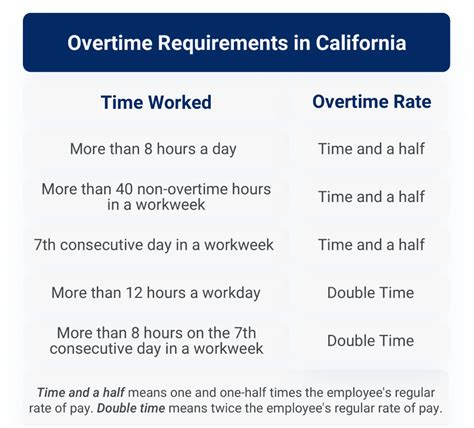Can Employers Enforce Overtime? Your Rights Explained

The Basics of Overtime
Overtime refers to the extra hours an employee works beyond their regular working hours. In most countries, employers are required to pay a higher rate of compensation for overtime work. However, there are certain exemptions to this rule, and some employees may not be eligible for overtime pay.
What is Overtime Pay?
Overtime pay is the extra compensation an employee receives for working additional hours beyond their regular working hours. The rate of overtime pay varies from country to country and is often set by law. In some countries, employees may be entitled to double their regular hourly rate for overtime work.
Who is Eligible for Overtime?
Eligibility for overtime pay varies from country to country and is often based on factors such as job classification, salary level, and the number of hours worked. In general, non-exempt employees are eligible for overtime pay, while exempt employees are not.
Can Employers Enforce Overtime?
While employers may require their employees to work overtime, they cannot force them to do so. In most countries, employees have the right to refuse overtime work. However, there are certain exceptions to this rule, such as in emergency situations where the safety of others is at risk.
What are the Consequences of Refusing Overtime?
Refusing overtime work may have consequences for employees, such as a reduction in hours or a loss of income. In some cases, it may also affect an employee’s chances for promotion or advancement within the company. However, employers cannot retaliate against employees for refusing overtime work.
Your Rights as an Employee
As an employee, you have certain rights when it comes to overtime work. Understanding your rights can help you make informed decisions about overtime and protect yourself from unfair treatment by your employer.
Right to Overtime Pay
If you are eligible for overtime work, you have the right to receive overtime pay at the rate set by law. Your employer cannot waive this right or require you to work overtime without compensation.
Right to Refuse Overtime Work
You have the right to refuse overtime work in most cases. Your employer cannot force you to work overtime, except in certain emergency situations. However, refusing overtime work may have consequences, such as a reduction in hours or a loss of income.
Right to File a Complaint
If you believe that your employer has violated your rights regarding overtime work, you have the right to file a complaint with the appropriate authorities. In most countries, there are government agencies that handle labor complaints and disputes.
FAQs
1. What is the maximum number of hours an employee can work per day?
The maximum number of hours an employee can work per day varies from country to country and may be limited by law. In the United States, for example, the maximum number of hours an employee can work per day is 8 hours.
2. What is the maximum number of hours an employee can work per week?
Like the maximum number of hours an employee can work per day, the maximum number of hours an employee can work per week varies from country to country and may be limited by law. In the United States, for example, the maximum number of hours an employee can work per week is 40 hours.
3. Can employers require employees to work overtime without compensation?
No, employers cannot require employees to work overtime without compensation. If an employee is eligible for overtime pay, they must receive compensation for all overtime work.
4. Can employers retaliate against employees for refusing overtime work?
No, employers cannot retaliate against employees for refusing overtime work. Retaliation against employees for exercising their rights is illegal and may result in legal action against the employer.
5. What should I do if my employer is not paying me for overtime work?
If your employer is not paying you for overtime work, you should first speak with your employer to try to resolve the issue. If this does not work, you may need to file a complaint with the appropriate authorities or seek legal advice.
